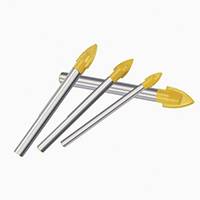loading...
- No. 9, Xingyuan South Street, Dongwaihuan Road, Zaoqiang County, Hengshui, Hebei, China
- admin@zjcomposites.com
- +86 15097380338
- Welcome to visit our website!
Advancements in Fiber Reinforced Polymer Rebar for Enhanced Structural Performance and Durability
Fiber Reinforced Polymer Rebar A Modern Solution for Construction
In recent years, the construction industry has seen significant advancements with the introduction of innovative materials that enhance the durability and longevity of structures. One such material gaining traction is Fiber Reinforced Polymer (FRP) rebar. Unlike traditional steel rebar, FRP rebar offers unique advantages that are increasingly important in today’s construction projects.
What is Fiber Reinforced Polymer Rebar?
Fiber Reinforced Polymer rebar is composed of a polymer matrix reinforced with fibers, such as glass, carbon, or aramid. The combination of these materials provides superior strength-to-weight ratios, corrosion resistance, and fatigue performance, making FRP rebar an ideal choice for various applications in concrete reinforcement.
Key Advantages of FRP Rebar
1. Corrosion Resistance One of the most notable benefits of FRP rebar is its resistance to corrosion. Traditional steel rebar is often susceptible to rust and deterioration when exposed to moisture and chemicals, especially in environments with high levels of salt, such as coastal areas or regions that use de-icing salts on roads. FRP rebar, however, does not corrode, which significantly extends the lifespan of concrete structures and reduces maintenance costs.
2. Lightweight FRP rebar is significantly lighter than steel rebar, making it easier to handle and transport. This property not only reduces labor costs but also allows for easier installation in hard-to-reach areas or intricate designs. The reduced weight can also lead to savings in the overall structural design and foundation requirements.
3. High Strength Despite its lightweight nature, FRP rebar exhibits high tensile strength. This capability enables it to withstand significant loads, making it suitable for various structural applications, including bridges, parking garages, and reinforcing concrete beams and slabs.
4. Non-Magnetic and Electrical Insulation FRP rebar is non-magnetic, which makes it ideal for applications in sensitive environments such as MRI facilities or electronic and communication installations. Additionally, it provides electrical insulation, contributing to safety in environments where electrical conductivity is a concern.
fiber reinforced polymer rebar

5. Thermal Expansion Compatibility The thermal expansion coefficient of FRP rebar is closer to that of concrete compared to steel. This compatibility minimizes issues related to expansion and contraction due to temperature fluctuations, reducing the risk of cracking in concrete structures.
Applications of FRP Rebar
FRP rebar is being utilized in a variety of construction projects across different sectors. Its characteristics make it particularly valuable in
- Infrastructure Projects Bridges, tunnels, and highway systems benefit from its corrosion resistance and strength, prolonging the lifespan of these critical structures. - Marine Structures Coastal and marine environments, which are harsh on traditional rebar, are ideal settings for FRP rebar. - Highway and Parking Structures The lightweight nature of FRP rebar makes it suitable for roadways and parking garages where cost-efficiency and durability are essential. - Rehabilitation Projects FRP rebar is often employed in strengthening existing concrete structures without significantly increasing their weight.
Challenges and Considerations
Despite its numerous advantages, there are challenges associated with the use of FRP rebar, primarily concerning its initial cost and the learning curve for engineers and contractors. FRP rebar tends to have a higher upfront purchase price compared to steel, which can deter some projects. Additionally, the unique material properties require specialized knowledge and techniques in design and installation. Nonetheless, the long-term savings in maintenance and the extended lifespan of structures built with FRP rebar often justify the initial investment.
Conclusion
Fiber Reinforced Polymer rebar represents a significant advancement in construction materials with its unique benefits that cater to the evolving needs of the industry. As the demand for more sustainable and durable construction solutions continues to rise, the adoption of FRP rebar is likely to expand, paving the way for innovative building practices that ensure safety, longevity, and reduced maintenance costs in the years to come. With ongoing research and development, FRP rebar holds great potential to redefine standards in concrete reinforcement, meeting the challenges of modern infrastructure demands.
-
Transform Your Spaces with FRP Grating SolutionsNewsNov.04,2024
-
The Versatility and Strength of FRP RodsNewsNov.04,2024
-
The Excellence of Fiberglass Water TanksNewsNov.04,2024
-
The Benefits of FRP Grating for Your ProjectsNewsNov.04,2024
-
Elevate Your Efficiency with FRP Pressure VesselsNewsNov.04,2024
-
Welcome to the World of FRP Pressure VesselsNewsOct.12,2024
-
Unveiling the Future of Filtration: Why FRP Filter Vessels are a Game ChangerNewsOct.12,2024
